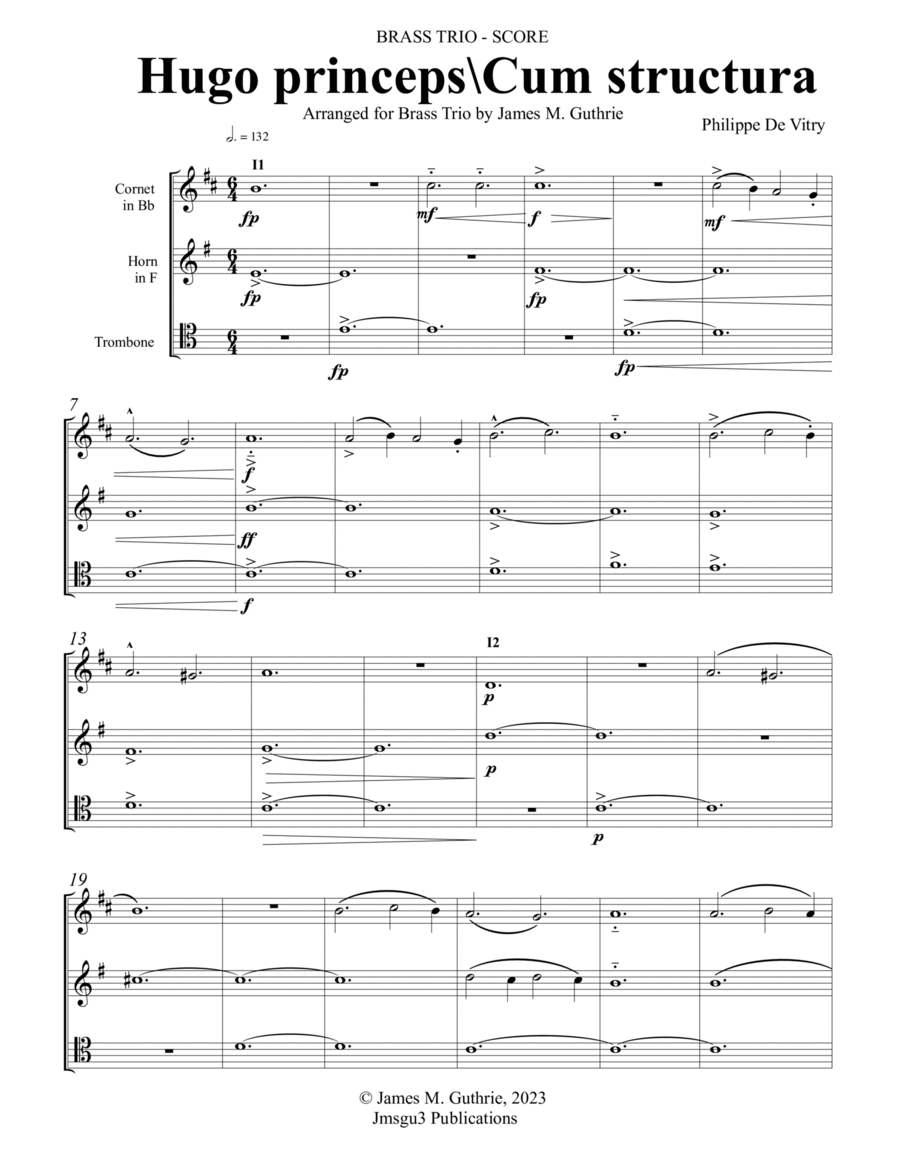Cornet,Horn,Trombone - Level 3 - Digital Download SKU: A0.1347512 Composed by Philippe De Vitry. Arranged by James M. Guthrie. Chamber,Early Music,Historic,Medieval,Traditional. 6 pages. Jmsgu3 #932321. Published by jmsgu3 (A0.1347512). The motet Hugo, Hugo, princeps by Philippe de Vitry is significant for its musical innovation and potential political connotations. The motet's text is drawn from the opening lines in the two top voices, and it is suggested that it makes a strong political statement about the exile of French Christians, similar to the Jews from their homeland in the Old Testament and the corrupt leadership at the time. Additionally, the motet employs elements that de Vitry helped develop early in the 14th century, which would later characterize the Ars Nova period in music. Therefore, Hugo, Hugo, princeps is notable for its musical and potentially political significance.The term Hugo princeps in Philippe de Vitry's motet is believed to refer to a specific individual named Hugo, potentially with political connotations. The term princeps in the motet's title may imply a reference to a leader or prince. When combined with the context of the text, it likely carries a symbolic or allegorical meaning related to that period's political and social environment. The term Cum structura in Hugo princepsCum structura is a musical term that translates to with structure in English. In the context of Philippe de Vitry's motet, it likely denotes the structural complexity and organization of the musical composition. This term reflects the meticulous and innovative musical construction for which Vitry's works are known, particularly during the Ars Nova period in the 14th century.Philippe de Vitry, a French composer-poet, bishop, and music theorist, is known for his significant contributions to late medieval music. In the last decade of his life, from 1351 to 1361, he served as the Bishop of Meaux, near Paris. This appointment was the crowning event of his court and church career. As a bishop, Vitry's accomplishments were primarily in the musical and literary domains. He was an innovative and influential composer, widely acknowledged as a leading musician of his day, and his treatise Ars Nova became a rallying cry for all modern composers after about 1320. Additionally, he was known for his French poetry set to music, creating a new style of song, anticipating the work of Guillaume de Machaut. While his tenure as a bishop was relatively short, his lasting impact was in music and poetry.
